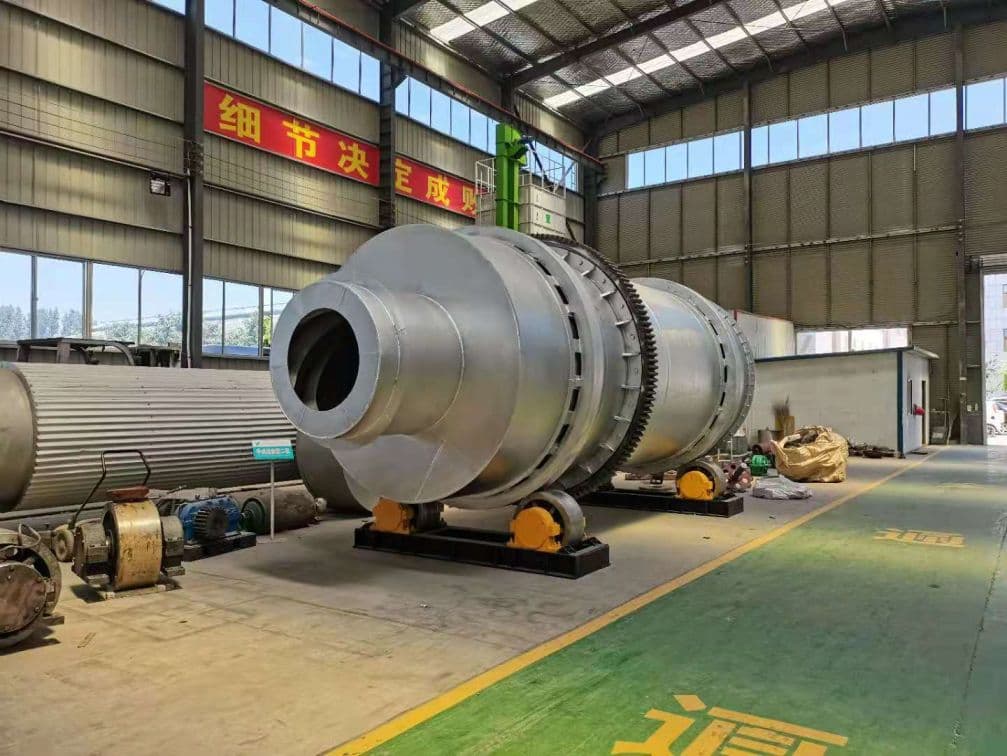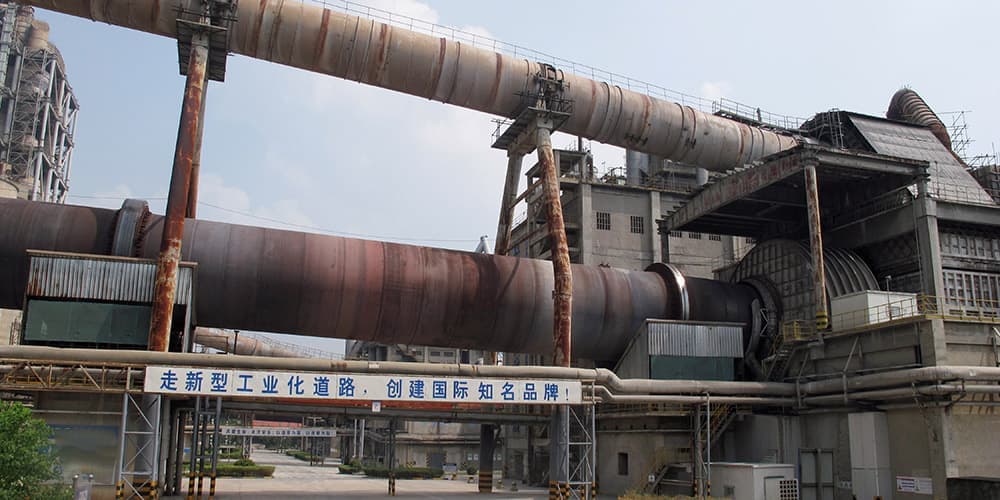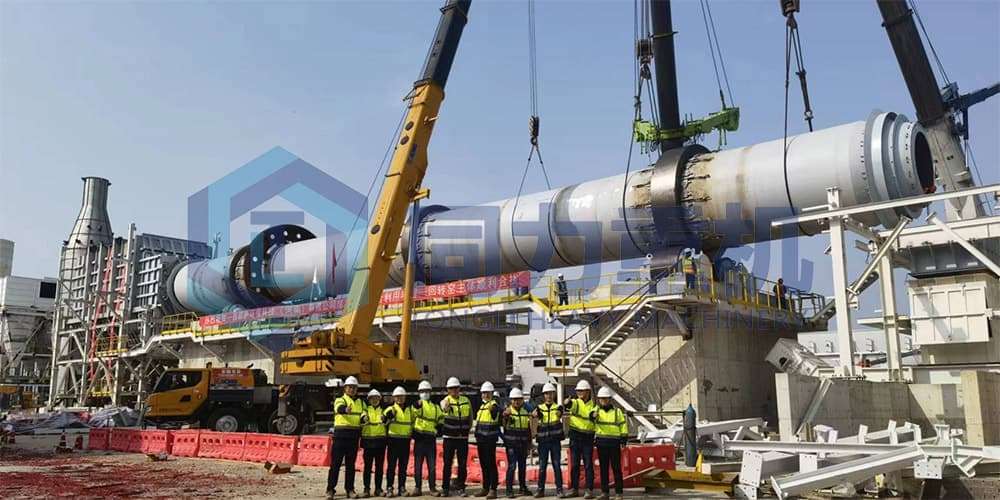From Batch Rotary Kiln Testing to Detailed Kiln Design
Rotary kiln is an efficient heat treatment equipment, widely used in mineral processing, chemical industry, metallurgy and environmental protection. Its working principle is to add the materials into the rotating cylinder, which is heated by the burner to make the materials undergo chemical reaction or phase change.
With decades of industry experience and advanced technology, TONGLI International is honored to be the global leader in rotary kiln design and manufacturing. Dedicated to empowering customers to develop and scale up new thermal processing technologies, TONGLI has established a state-of-the-art innovation center that offers a full range of rotary kiln testing services.

Why test in a batch rotary kiln?
Batch rotary kiln testing provides a powerful platform for simulating the operating conditions of a continuous commercial rotary kiln, helping you gain insight into process-critical parameters and optimize product quality and productivity. Through testing, you can precisely determine:
- The time and temperature required to achieve the desired product quality: Accurate control of time and temperature is a critical factor in achieving high product quality. Batch rotary kiln testing can help you determine the optimal process parameters to ensure that your product consistently meets your quality standards.
- Maximum temperature tolerance of raw materials: Knowing the temperature limits of your raw materials is critical to ensuring safety and product quality. Batch rotary kiln testing can help you determine your raw materials’ maximum temperature tolerance and avoid potential production problems.
- Effect of different gas temperatures, shell temperatures and heating rates on reaction rates: These parameters can have a significant impact on the speed of chemical reactions and product quality. Batch rotary kiln testing can help you evaluate the effects of different parameter combinations and find the optimal solution to improve productivity and product quality.
The data from batch rotary kiln testing provides a solid foundation for continuous pilot plant test work and for the design and manufacture of commercial rotary kilns, helping you achieve your goals of efficient, high-quality production.

Batch Rotary Kiln Simulation Capabilities
TONGLI’s batch rotary kilns are capable of simulating the operating conditions of a continuous commercial rotary kiln, utilizing high temperatures to initiate chemical reactions or phase changes in materials. Test setups are adjusted based on material properties, processing goals and desired end products. Common test processes include:
- Thermal desorption of organic and hazardous wastes
- Thermal sizing process
- Combustion of organic materials
- Recovery of metals
- Calcination of materials
What are the features of TONGLI batch rotary kilns?
TONGLI offers two types of batch rotary kilns:
- Direct Fire Batch Rotary Kiln: 18 inches in diameter and 24 inches in length, capable of heating solids to 3000°F (1650°C).
- Indirect Fire Batch Rotary Kiln: 10.5 inches in diameter and 24 inches in length for materials that cannot come into contact with combustion gases.
TONGLI’s direct-heat batch rotary kiln has an 18-inch inside diameter and 24-inch length, and is equipped with a refractory liner and variable-speed control system, as well as instrumentation for monitoring material bed and gas-phase temperatures. The kiln is equipped with a propane burner and can be supplied with an oxidizing or reducing gas atmosphere as required. In addition, kiln exhaust can be treated by secondary combustion chambers, wet scrubbers or baghouses to meet specific pollution control requirements.

Indirectly heated batch rotary kilns are used for materials that cannot be directly exposed to combustion gases. These kilns are 10.5 inches in diameter with a heated length of 24 inches and are typically filled to 8-10% volume load. The kiln shell is capable of reaching temperatures up to 1,000°C. It is heated by a propane burner below and the temperatures of the shell, bed and exhaust gases are monitored by multiple thermocouples.
The team of experts at the TONGLI Innovation Center were able to capture and store a large amount of data during the test, including zone currents, shell temperatures, kiln material temperatures, kiln exhaust gas temperatures and kiln chamber temperatures. This data, combined with regular collection of material samples and chemical-physical analysis, can be used to determine the size and process operating conditions of commercial kilns.
How to choose a suitable test batch rotary kiln?
Selecting a suitable test batch rotary kiln requires consideration of the following aspects.
- Determine the purpose and requirements of the test: According to the specific material processing objectives, such as thermal desorption, calcination, metal recovery, etc., clarify the test needs to achieve the temperature, residence time and other key parameters.
- Consideration of material properties: the physical and chemical properties of different materials vary greatly, requiring the selection of the appropriate kiln material and lining, as well as the heating method (direct or indirect heating).
- Evaluate the test scale: According to the required test volume and frequency, select the appropriate capacity of the rotary drum kiln, usually 10-50 liters for laboratory scale.
- Temperature control capability: Ensure that the drum kiln’s heating system is capable of reaching and stably maintaining the required maximum temperature, typically 1000-1650°C in laboratory drum kilns.
- Adjustable speed: speed has an important impact on the mixing of materials and heat transfer, should choose the speed adjustable equipment.
- Supplier strength. Choose experienced and professional manufacturers, can provide technical support and after-sales service.
Comprehensive consideration of the above factors, combined with specific test requirements and budget, choose the most suitable test batch rotary drum kiln, which can provide reliable data support for the subsequent amplification test and industrialized production.
Contact us
Rotary kilns have a wide range of applications in a number of fields, including waste lime recycling, proppant manufacturing, clay processing, thermal desorption of organic and hazardous wastes, mineral roasting, specialty ceramics production, plastics processing, gypsum calcination, tire pyrolysis, bauxite calcination, pigment manufacturing, catalyst production, and phosphate fertilizer production.
TONGLI International is a global leader in rotary kiln design and manufacturing with decades of industry experience and advanced technology. We offer a full range of rotary kiln testing services to help you shorten process development time, reduce project risk, optimize product quality, improve productivity and save costs.
TONGLI rotary kiln testing services:
- Simulate conditions of a continuous commercial rotary kiln
- Determine key process parameters
- Collect detailed test data
- Provide professional analysis and recommendations
Advantages of TONGLI Rotary Kiln Testing:
- Experienced team of experts
- Advanced testing facilities
- Comprehensive testing services
- Reliable test results
If you are considering using rotary kilns for heat treatment, contact TONGLI International. Our team of experts will be happy to serve you with professional testing and consulting services.

